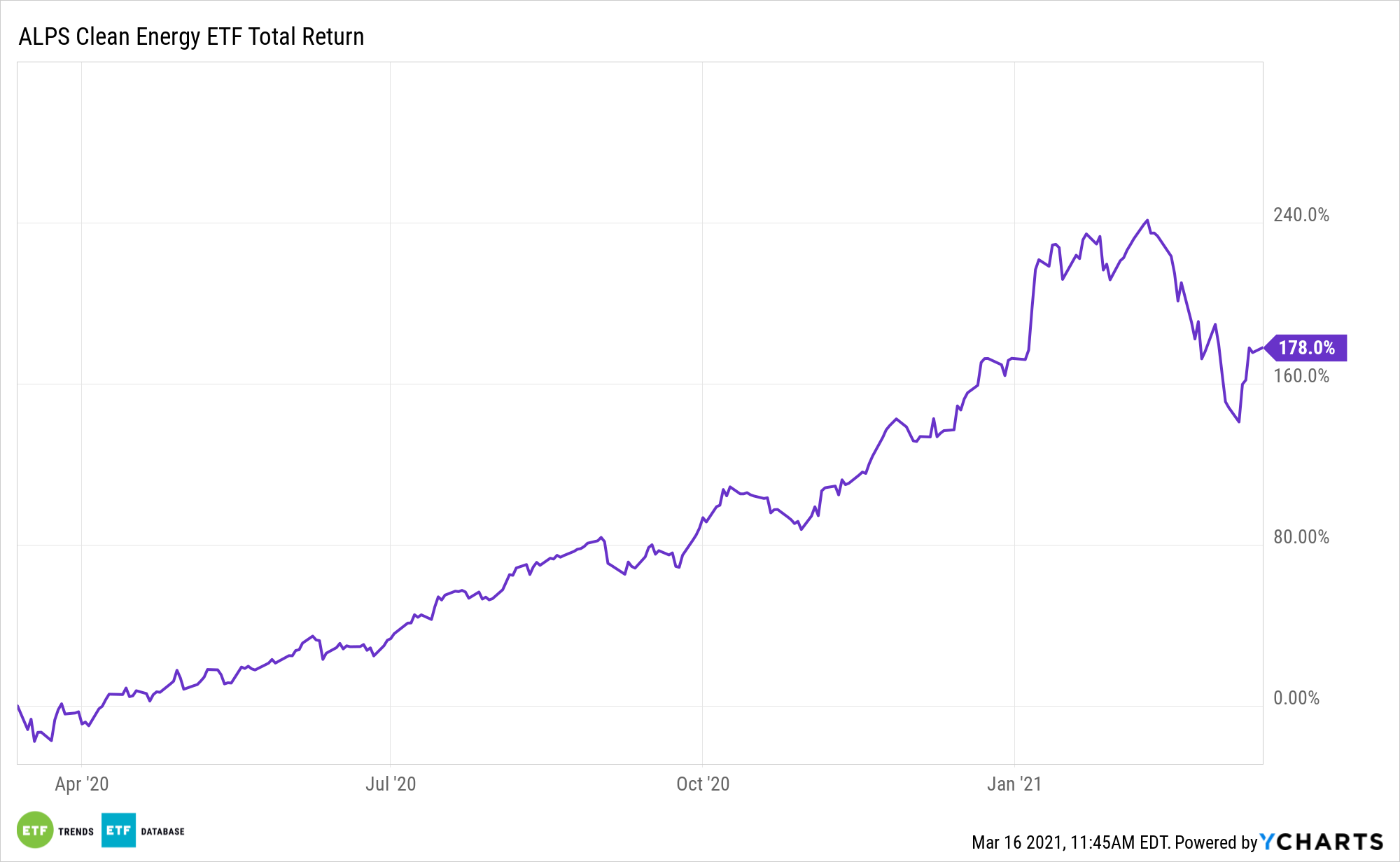Solar and wind power are proving durable during the coronavirus pandemic, propping up renewable energy funds like the ALPS Clean Energy ETF (ACES).
ACES follows the CIBC Atlas Clean Energy Index. That benchmark is comprised of U.S.- and Canada-based companies that primarily operate in the clean energy sector. Constituents are companies focused on renewables and other clean technologies that enable the evolution of a more sustainable energy sector.
“Electricity production from solar projects continues to exceed initial estimates with many solar projects performing so well operationally that some ratings are equivalent to those of the off-taker,” according to Fitch Ratings. “Conversely, wind projects are still largely underperforming against expectations. Fitch reports that 73% of annual observations from its rated solar projects were within 5% or better of the original P50 levels. By contrast, only 24% of wind project observations were within 5% or better of the original P50 levels.”
Up over 175% over the past year, ACES is still rewarding investors handsomely, despite a recent downturn.

Solar Heating Up the Case for ACES
Setting the stage for ACES are expectations that in the coming decades, renewables will account for more power generation than fossil fuels.
A catalyst for ACES this year is increased ESG awareness in corporate America, which has only contributed to clean energy’s overall growth. Looking ahead, regulators could also lay out guidelines to help investors better invest in the green industry.
“Running counter to broad swaths of the infrastructure sector, performance-related downgrades in 2020 did not deviate from historical norms. ‘The ongoing global pandemic has had a muted impact on this class of credits that are largely insulated from demand risk and have remained operationally stable,’ said Senior Director Andrew Joynt,” notes Fitch.
ACES’ solar components included companies that derive a significant amount of their revenues from the following business segments of the solar industry: solar power equipment producers, including ancillary or enabling products. Declining costs and a low interest rate in the United States are bolstering the case for solar equities, propelling ACES higher in the process.
“Meaningful changes are underway in the renewables sector. Ever-growing corporate sustainability goals should continue to fuel the growth of commercial and corporate PPAs. ‘The typically shorter tenors of these contracts suggest that we will continue to see more financings that stretch into a merchant period,’ said Joynt,” concludes Fitch.
Other alternative energy ETFs include the First Trust Global Wind Energy ETF (FAN) and the SPDR Kensho Clean Power ETF (CNRG).
For more on cornerstone strategies, visit our ETF Building Blocks Channel.
The opinions and forecasts expressed herein are solely those of Tom Lydon, and may not actually come to pass. Information on this site should not be used or construed as an offer to sell, a solicitation of an offer to buy, or a recommendation for any product.








